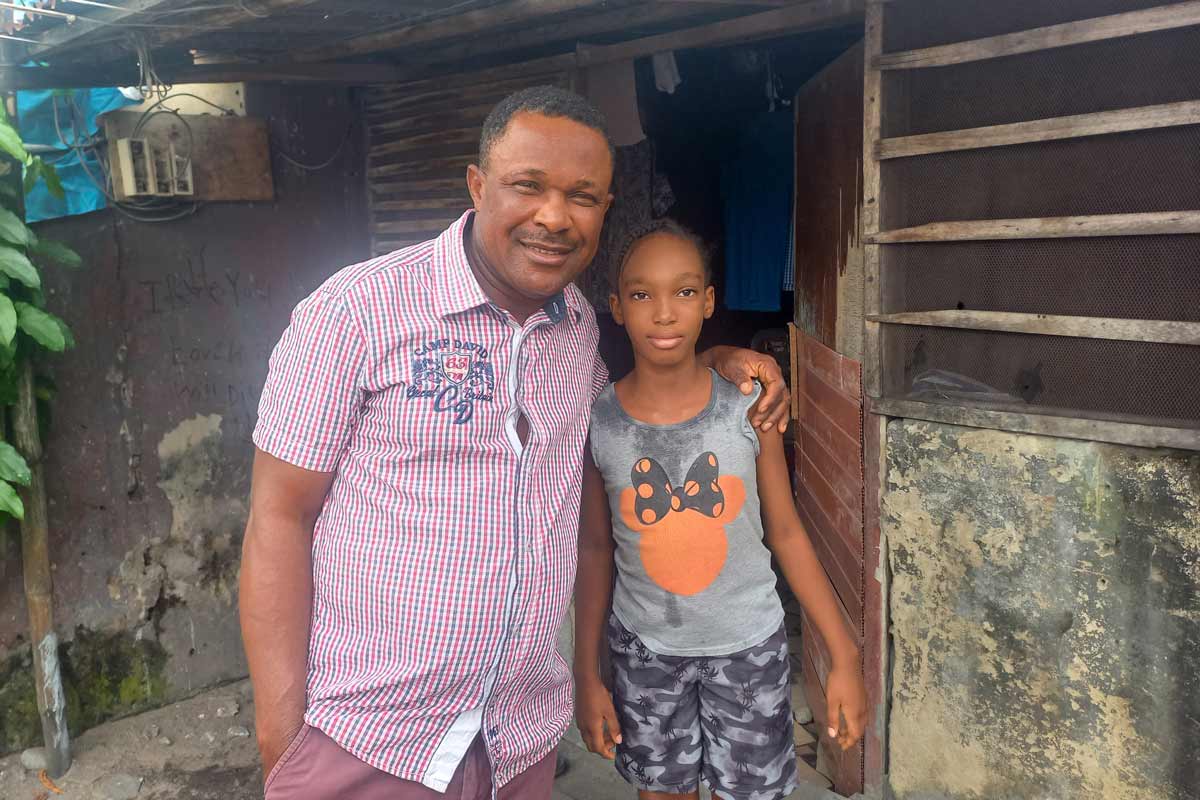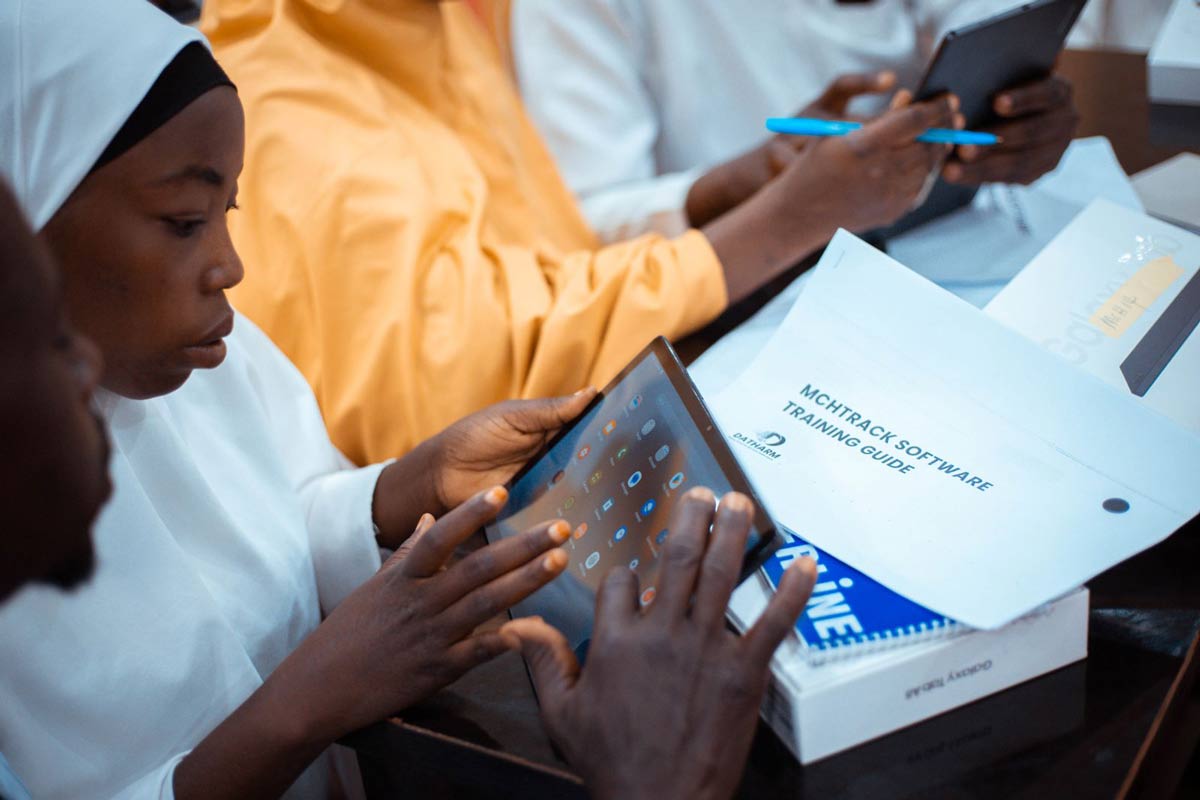In Nigeria's Kwara state, a new borehole transforms a community's health
In rural Gaa Suraju, health benefits continue to accrue from an NGO-led, pandemic-era clean water project.
- 27 August 2024
- 6 min read
- by Afeez Bolaji
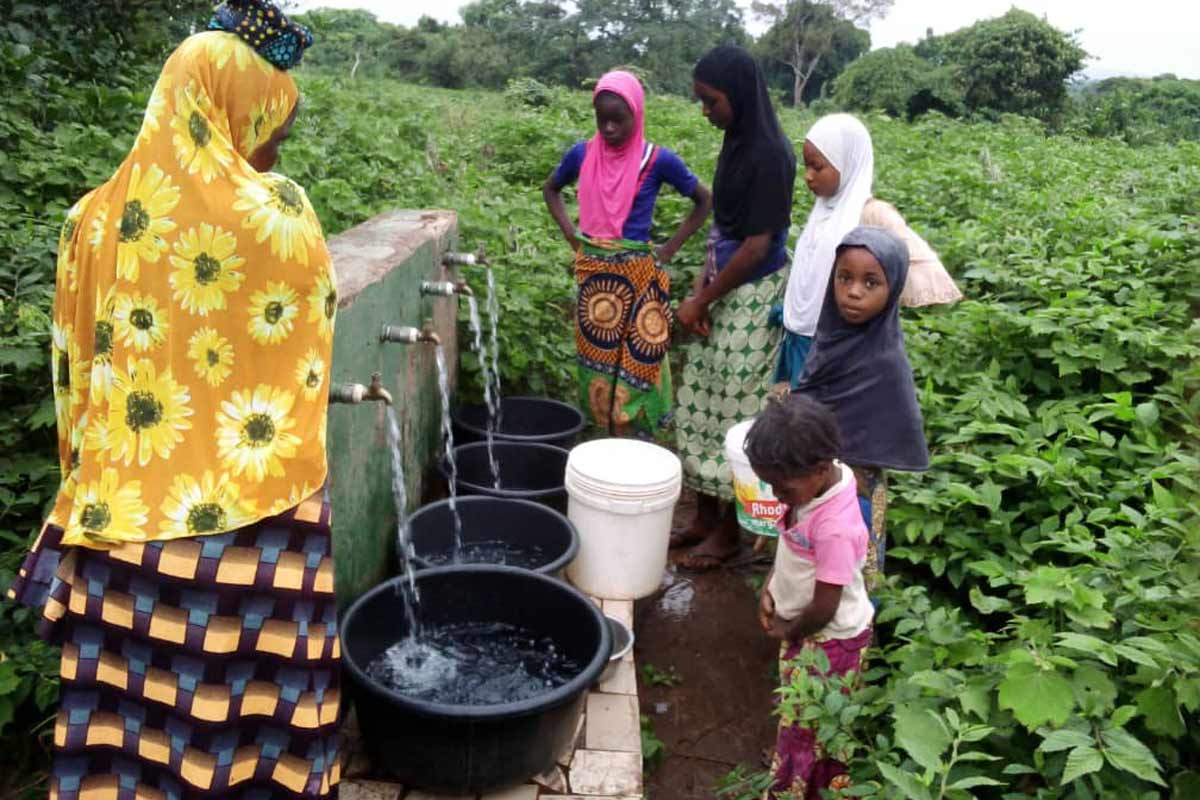
The sound of a generator firing up jolted sleepy Gaa Suraju, a rural community in Kwara State, north-central Nigeria, to life. It was late morning in mid-August and schools were on holiday. Women and children carrying containers emerged from a cluster of low mud houses to fetch water from the generator-powered borehole at the centre of town.
Pleasantries, chit-chat, and banter flowed freely as the locals took turns collecting water from four taps. Just three years ago, this scene would have been a dream for Gaa Suraju residents, said Khadijat Abdullahi, a middle-aged mother of four.
"We used to trek three kilometres to a stream every day to fetch water. We would leave our homes very early in the morning and come back in the afternoon. On weekends when children didn't go to school, they followed us. There were times, especially during the dry season, when we hardly got water due to drought. We could not bathe daily or maintain proper hygiene," she told VaccinesWork in the local Yoruba language.
“It's been long since we last treated cholera or typhoid – since the borehole was constructed.”
- Adenike Adebayo, nurse
For many years, there was competition between the people and the cattle herded to the stream to drink, said Abdullahi Atiku, a religious and traditional leader in Gaa Suraju. Kids often fell ill with gastric symptoms.
That all changed at the peak of the COVID-19 pandemic in 2021, when a not-for-profit called The Grassroots Aid Initiative (TGAI) constructed a borehole.
"Water was a serious challenge here,” Atiku said. “Our children frequently came down with diarrhoea and typhoid fever, which we believed were caused by the unclean water we drank, but since we have the borehole, I can't remember the last time we had such crises."
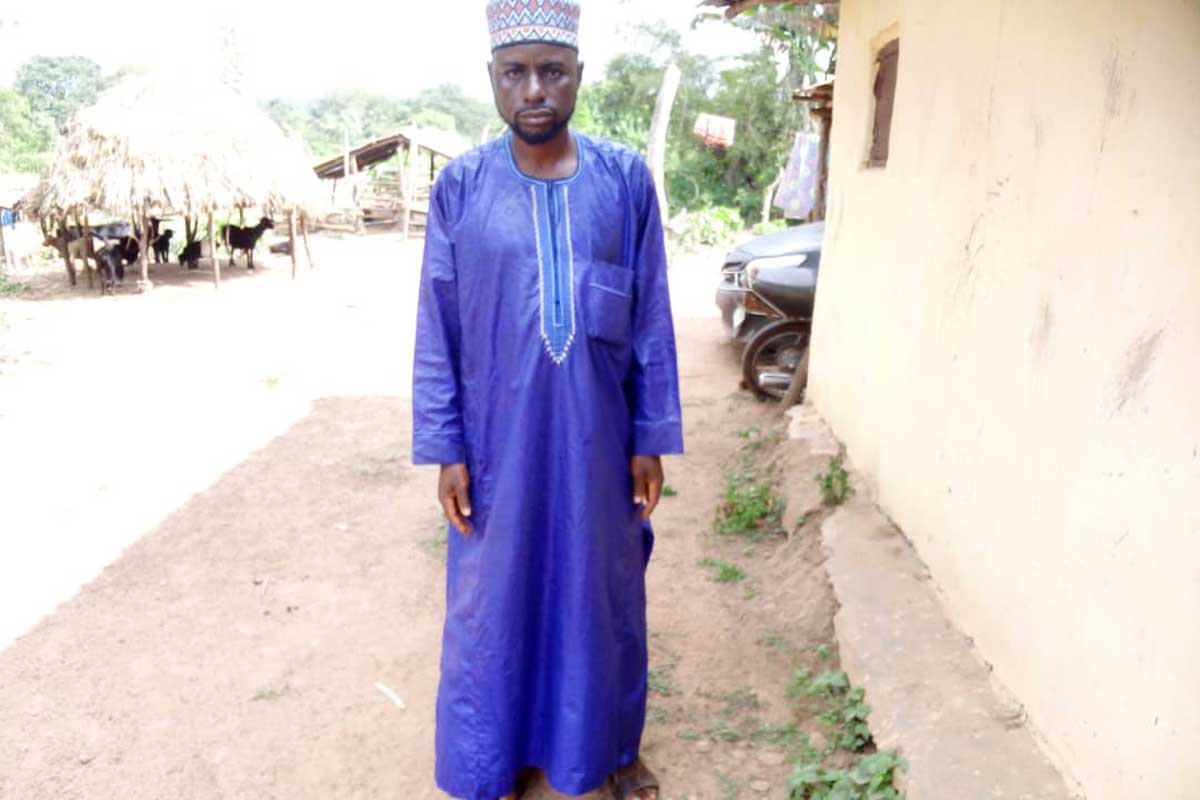
Teaming up
The borehole exclusively runs on a petrol generator as the community is off the power grid. Atiku said petrol had increasingly become hard to afford since its price surged by more than 300% in May 2023, when the Nigerian government removed the fuel subsidy.
"We contribute money for fuelling and the generator's routine maintenance. Some people also donate money just to ensure the borehole constantly serves the community. We are about 1,000 [people]," he added.
Access to water, sanitation and hygiene (WASH) is a major issue in many hard-to-reach communities in Nigeria, with unsafe water posing severe health risks to the people. The risks are heightened amid low rainfalls, or flooding and prolonged drought – which are currently being experienced in many parts of Nigeria – and these extreme weather events are only growing more frequent as a consequence of climate change, experts say.
Based on 2018 statistics, it’s estimated that more than 100,000 children under the age of five die every year, countrywide, as a consequence of water-and-sanitation-related diseases.
But joint efforts by the Nigerian government, UNICEF, local partners like TGAI and communities themselves are pushing back against that threat.
Since 2018, when the Nigerian government and UNICEF partnered up to on a joint WASH initiative, over 1,700 solar-powered boreholes and 10,000 hand pump boreholes have been either constructed or rehabilitated across 26 states. That translates to access to safe drinking water for about 12 million people, Dr Jane Bevan, UNICEF chief of WASH, told the press recently. She noted that more than 24 million people have gained access to basic sanitation services, with about 2,000 primary health centres and 3,000 schools equipped with complete WASH facilities.
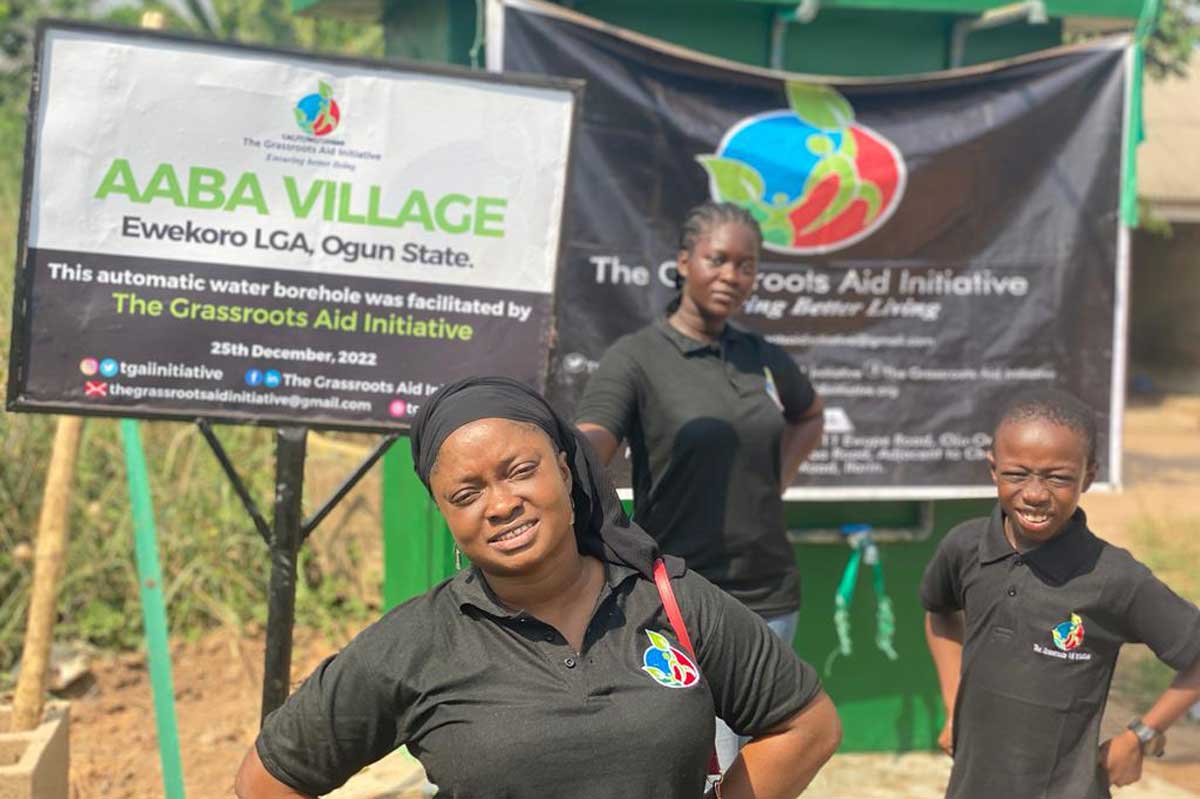
When potable water meets immunisation
Health workers at public and private-owned hospitals in Erinle, a nearby community where the people of Gaa Suraju go to access health care services, acknowledged that the borehole has made an impact on rates of waterborne disease.
"We recorded many cases of cholera from the community [Gaa Suraju] and treated at least five patients, mostly children between ages one and five, every week during the time they were using the stream water. We also treated many patients for typhoid fever. Fortunately, we did not record any deaths," Adenike Adebayo, a nurse at Folorunsho Hospital in Erinle, said.
"It's been long since we last treated cholera or typhoid – since the borehole was constructed. We also sensitise people to personal hygiene, advising them to wash their hands and always maintain a clean environment," she added.
Adebayo explained that the hospital also leaned on routine immunisation and outreaches to fend off vaccine-preventable diseases like rotavirus, the leading cause of acute gastroenteritis in the world.
"We encourage parents to bring their kids for vaccination regularly. The weekly turnout has been very commendable, and I would say both immunisation and the borehole have been impactful," she said.
“Water, to a large extent, affects education, health and so many other things. During the COVID-19 pandemic, we did several projects because of the essential role water plays in reducing the spread of the virus.”
- Dr Kehinde Kadiri, founder, The Grassroots Aid Initiative
Not quite picture-perfect
Gaa Suraju is one of 24 undeserved communities in six states across Nigeria that have so far benefitted from the TGAI water initiative. According to the NGO’s founder, academic and former University of Ilorin Mass Communications department chief Dr Kehinde Kadiri, it all began with a photography project.
"The idea came when I was doing my PhD in Malaysia. On my return to Nigeria, I volunteered to teach photojournalism and asked my students to take pictures that reflect realities in society. We did an exhibition of 50 pictures, and afterwards, I also started going out to take pictures of people living at the edge of society. I was posting them on social media, and people were showing interest," she stated.
In 2017, she documented a water crisis at Ago Oja in Kwara, and one of her social media followers decided to fund the construction of a hand-pump borehole in the community.
"The NGO has over 50 volunteers, mostly students, and focuses on SDG 6 [Sustainable Development Goal 6; access to safe water] because it gives us mileage and is much more impactful. Water, to a large extent, affects education, health and so many other things.
"During the COVID-19 pandemic, we did several projects because of the essential role water plays in reducing the spread of the virus. So far, we have constructed 24 boreholes through donations. We are executing the 25th this year," she said.
The interventions are not without their issues, Kadiri conceded. Communities like Gaa Suraju maintain the project well, but a few others don't. In one community, a generator powering the borehole was stolen; in another, the borehole was abandoned after developing a fault.
"We visit the areas occasionally to inspect the projects. For instance, in Ago Oja, the borehole has been abandoned, but the community now has another one," she added.
Have you read?
In another case, a borehole produced water that proved not to be quite as safe as the organisation and recipient community had hoped. In 2022, TGIA constructed an electric-powered borehole at Coker, a small community with about 2,000 people in Ogudu, Lagos State, in response to the decades of poor access to water in the area.
The people can now perform domestic chores and maintain sanitation with adequate water, but there are still issues, said Nelson Ogunaja, Coker Community Development Association former chairman. "The major problem is that the water has iron, which makes it unsafe for drinking. But we use it to cook, wash clothes, and do dishes. Most people still buy the water they drink. We didn't discover it had iron immediately after the borehole was completed.
“We are appealing to the government and other organisations to assist us with another borehole that can provide drinkable water," he added.

